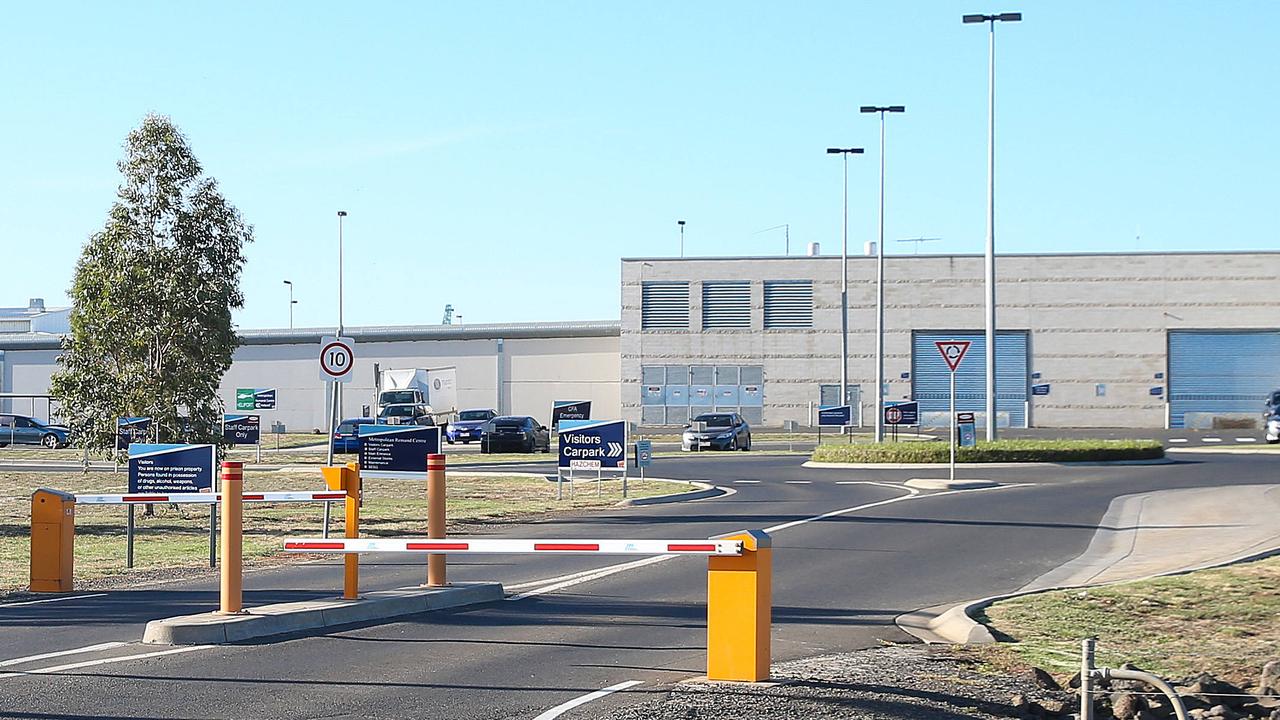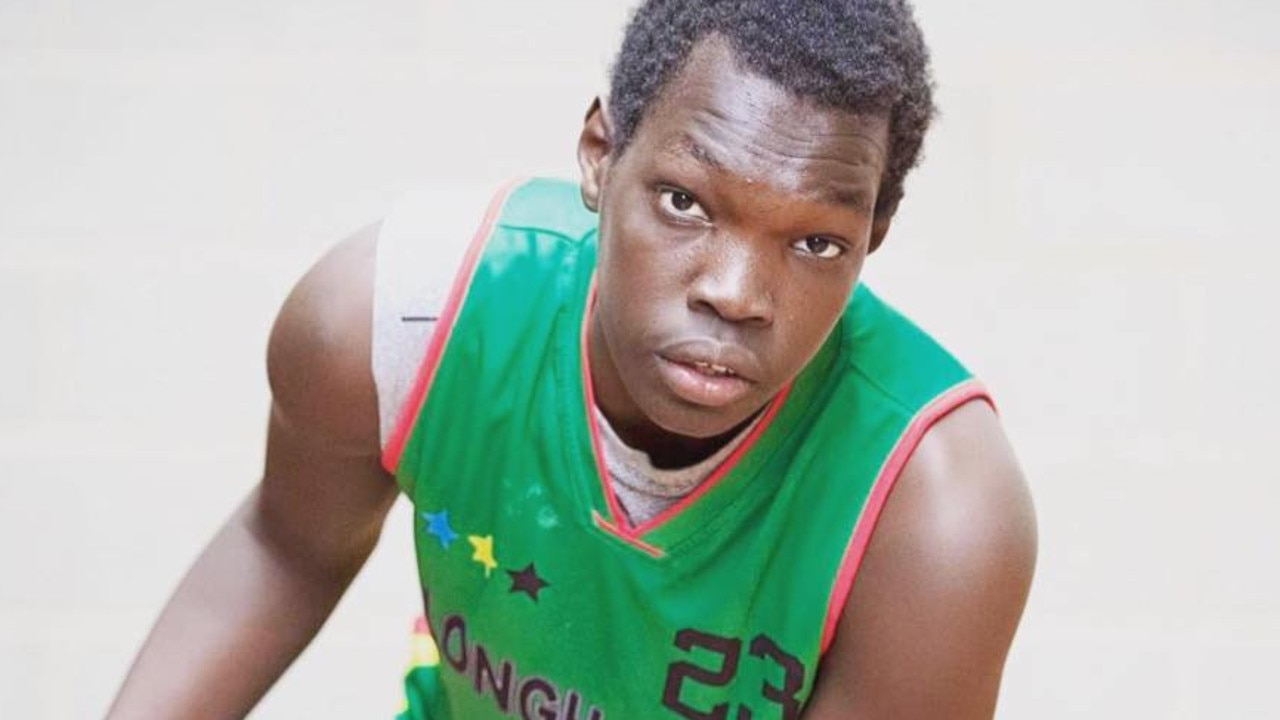Bikies felt disrespected when a man known to Mitat Rasimi refused to pay a debt
Shocking details of what motivated three bikies to shoot dead gangland figure Mitat Rasimi in Dandenong have been laid bare following a three-month trial.
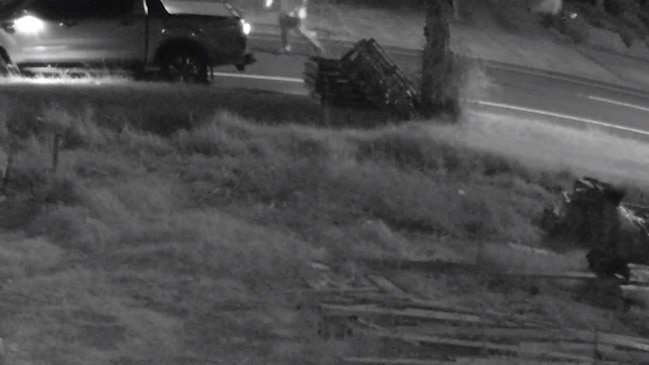
Police & Courts
Don't miss out on the headlines from Police & Courts. Followed categories will be added to My News.
Three Comanchero bikies have been convicted over the brutal murder of underworld heavyweight Mitat Rasimi gunned down because they thought he and his mates had disprected them.
A Supreme Court jury last month found Laiseni Kakato, Richard Ene, and another man guilty of murder after they plotted to kill Mr Rasimi over a $200,000 debt from a development deal gone wrong.
The Herald Sun has chosen not to report on the mammoth three-month trial until now due to sensitivities around a web of trials involving bikie figures, but can now reveal the brutal inner working of the outlaw motorcycle gang.
Mr Rasimi, 51, was shot four times to the torso in a hail of bullets as he drove along Dawn Ave in Dandenong, just metres from his home, about 9.38pm on March 3, 2019.
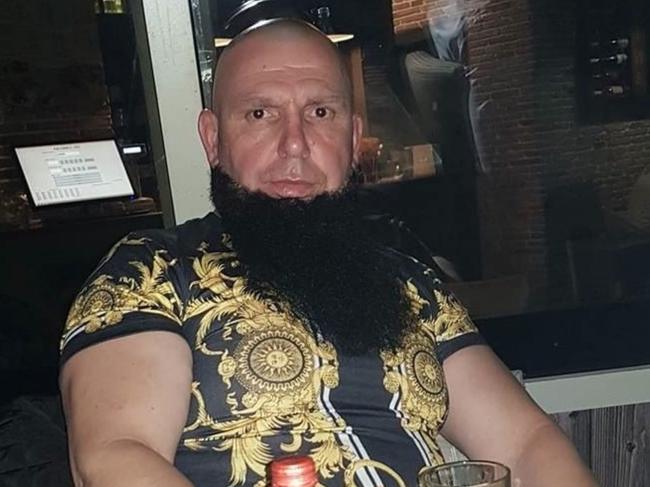
Ene, 29, from Hampton, was driving a stolen orange Ford Ranger ute with Kakato, 31, from Endeavour Hills, in the passenger seat armed with a .22-calibre handgun, when they sped up beside Mr Rasimi’s Peugeot and shot him.
“Drive,” Kakato barked after firing a volley of shots.
But he soon after pulled the trigger again after Ene replied: “No, finish it. Empty the clip.”
A 34-year-old Deer Park man, who the Herald Sun has chosen at this stage not to name, had organised the car to be used in the crime.
Prosecutor Patrick Bourke said the agreement to kill Mr Rasimi was hatched during conversations at a cafe, restaurants, a gym and bikie members’ homes.
“These aren’t four meetings that take place around the board table and someone’s taking the minutes,” Mr Bourke told the jury.
Mr Bourke said the bikies felt disrespected when a man known to Mr Rasimi refused to pay the debt.
When they couldn’t find their target they set their eyes on Mr Rasimi as he was “easier to locate”.
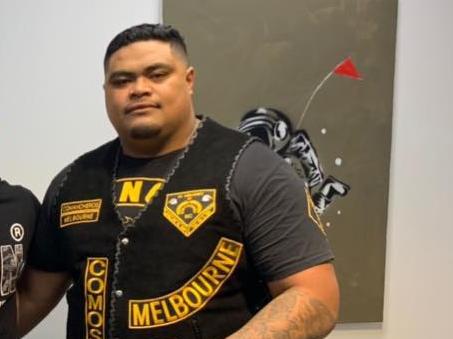
Trusted insiders, who cannot be identified, turned key Crown witnesses, detailing in court how the plan had escalated from an assault or leg-breaking to a killing.
They revealed how Ene, Kakato and the third man were all awarded a prestigious Comos patch for their involvement in the murder at a club patch party a fortnight later on March 16.
But defence lawyers for the convicted killers tried to discredit the witnesses, labelling them liars.
“They’re criminal people who have told lies to get themselves out of trouble,” one defence lawyer told the jury.
“They’ve received a benefit for giving evidence – reduced sentences.”
But it wasn’t just the word of the witnesses that stacked up against the Comanchero bikies.
The jury heard the first mistake was made shortly after the crime when Kakato and Ene bungled the torching of the Ford ute, leaving crucial forensic evidence, in Bangholme.
DNA found on the driver’s seat and the passenger’s seatbelt were a strong match to the men.
Two black gloves, inside out and stuffed in the console, were found to contain DNA “100 billion times more likely” to be that of Ene than someone else.
Mr Bourke said Ene and Kakato had doused the car in petrol and poured a trail across the road before lighting it.
But they were interrupted by a car coming along and quickly fled before ensuring the job was done.
The Ford also had a tracking device which showed where it had travelled in the hours before, including on Mr Rasimi’s street.
“Talk about big brother,” Mr Bourke told the jury, detailing how the on-board computer records every couple of seconds where this car is via a latitude and longitude.
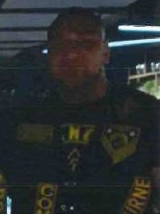
He said the path of the vehicle aligned with the movement of Ene’s phone as it connected to nearby towers on the night of the murder.
Phone records also implicated the men as they communicated using encrypted Ciphr phones, with Kakato having the username “Black Money” or” B Money”, while Ene’s handle was “Tickle Pickle” and the third man went by “Crunchy”.
The court heard the Comanchero had also enlisted gangland figure Nabil Maghnie, who was shot dead in January 2020, to help collect the debt.
The February 12 before Mr Rasimi’s murder, Maghnie replied to a text from the outlaw motorcycle gang requesting assistance, saying: “I’m all over it, leave it to the mad Leb.”
But after unsuccessful attempts by Maghnie to get the person who owed the debt to pay up, the focus moved to Mr Rasimi.
In one text exchange a week later on February 19, Kakato told Maghnie: “We hitting Mitat tonight.”
Maghnie replied: “Okay, good luck. Let me know how youse (sic) go. Please, just for obvious reasons, take care.”
“Okay bro, will do,” Kakato replied.
The court heard Kakato went to Mr Rasimi’s house but a woman appeared at the window so he aborted the mission.
Victoria Police Inspector Wayne Cheesman, who was one of the founding members of the Echo Taskforce set up in January 2011 to investigate outlaw motorcycle gangs, told the court the level of violence and criminal activity undertaken by the Comanchero had escalated in recent years.
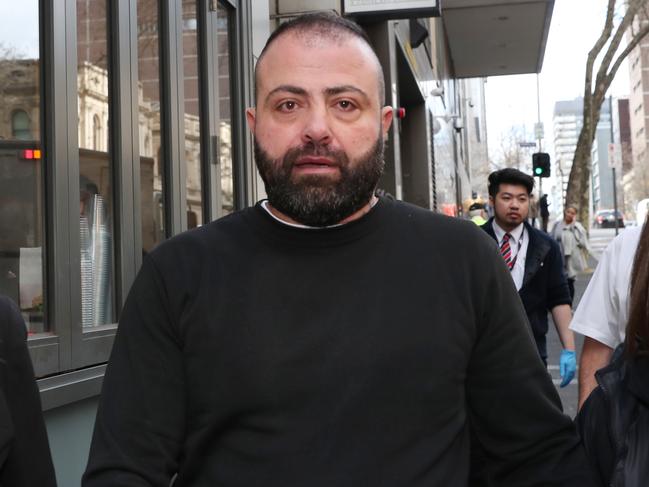
He said debt collection was a “common example” of club business, with members holding to the motto: “We do what we want, to whom we want, when we want.”
“Reputation is probably one of the most important things that clubs seek, because it gives them, I guess, a legitimacy, a power, and authority – a way of saying, ‘We’re not to be messed with’,” he said.
He said members were rewarded for their loyalty with patches to proudly wear on their vests.
A fourth man, Albert Tangata’olakepa, who is not a bikie, was also on trial but was found not guilty of assisting the men.
Police had alleged he disposed of the gun during a concrete pour at a Brunswick building site he worked at in the days after the murder in exchange for cash and a gold Rolex.
As he walked free from court, Mr Tangata’olakepa, 36, from Seaford, remained adamant he did not dispose of the weapon, telling the Herald Sun he felt “good” and “happy” about the verdict.
Asked if he thought the jury got it right, he said: “They got it bang on, perfect.”
He wouldn’t be drawn on his co-accused or their involvement.
“I have one cousin there, and that’s about as much as I know,” he said.
“I don’t know anything else, how it went.”
Asked how he planned to celebrate, he said: “It’s just Wednesday, I just want to go home and have dinner with my family and be happy.”
The three men convicted of murder are each facing a maximum penalty of life in prison.
They will be sentenced at a later date.

